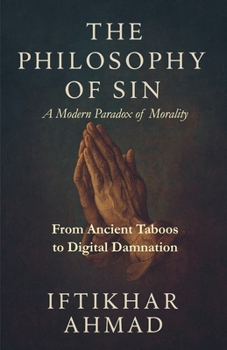The Philosophy of Sin
THE PHILOSOPHY OF SIN
A Modern Paradox of Morality
From Ancient Taboos to Digital Damnation
is nothing less than a gift for the students of Religion, Philosophy, and Psychology.
Sin is among humanity's oldest words-yet perhaps its most misunderstood.
This book does not aim to condemn or excuse. Instead, it invites readers to see sin not as an outdated dogma, but as a living mirror of conscience, culture, and choice.
Drawing on Islamic scholarship, Western philosophy, psychology, neuroscience, and cultural analysis, it explores why wrongdoing persists: from dopamine-driven habits to digital shame, from collective judgment to moral apathy. It moves beyond slogans-"cancelled," "toxic," "problematic"-to ask what truly changes hearts and societies.
Across chapters, the inquiry spans free will and determinism, public condemnation and gendered guilt, AI and digital vigilantism, and the paradox of justice and mercy. The final chapters reflect deeply on Islamic moral thought-not as authority, but as a worldview grappling with accountability, compassion, and redemption.
The Philosophy of Sin offers no formulas-only questions worth wrestling with: Why do we fall? Why do we rename our failings? And what must we build to rise again, together?





